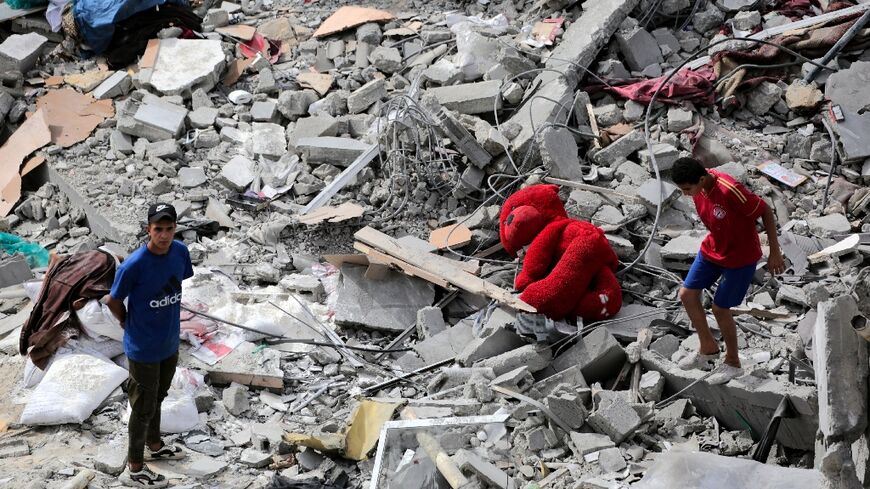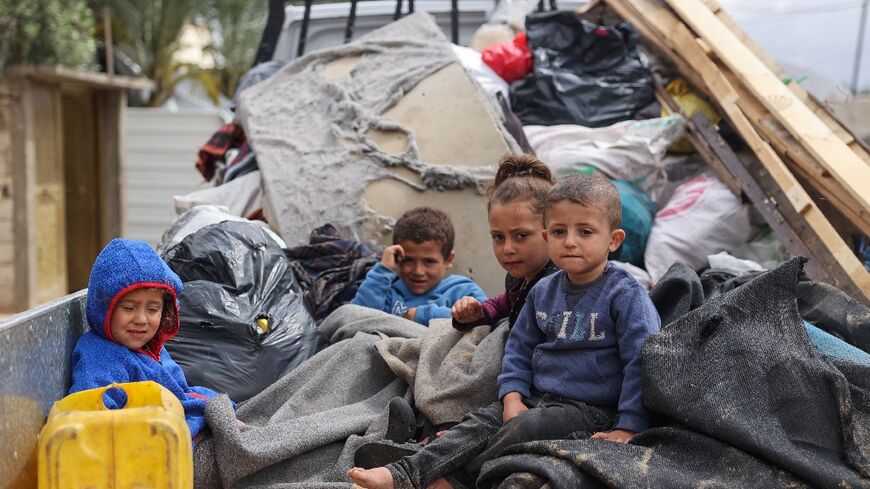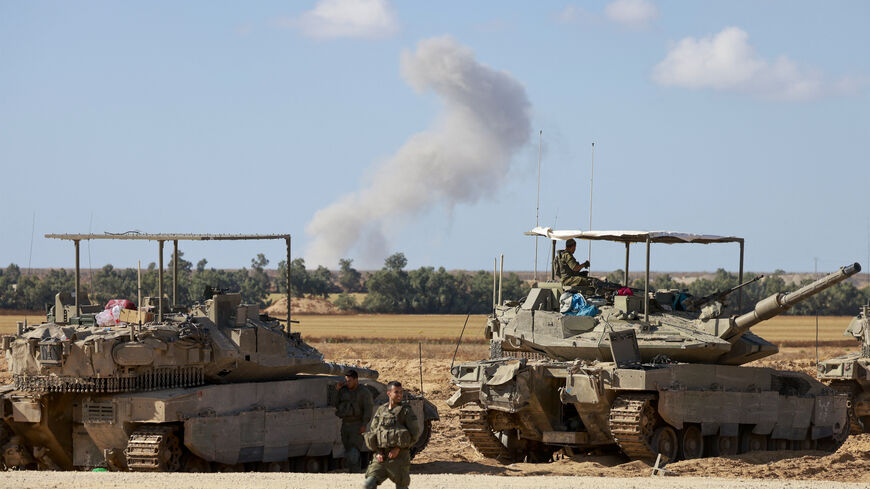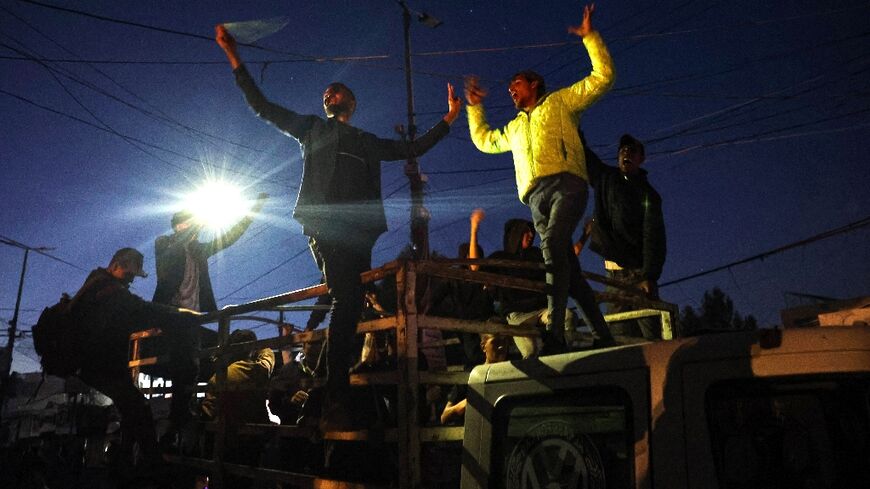Panic in Rafah as Israel expands operation, Palestinians ordered to al-Mawasi
The Israeli army’s invasion into parts of Rafah and the failure of cease-fire talks in Cairo killed displaced Palestinians’ hope for an end to the war, now into its eighth month.
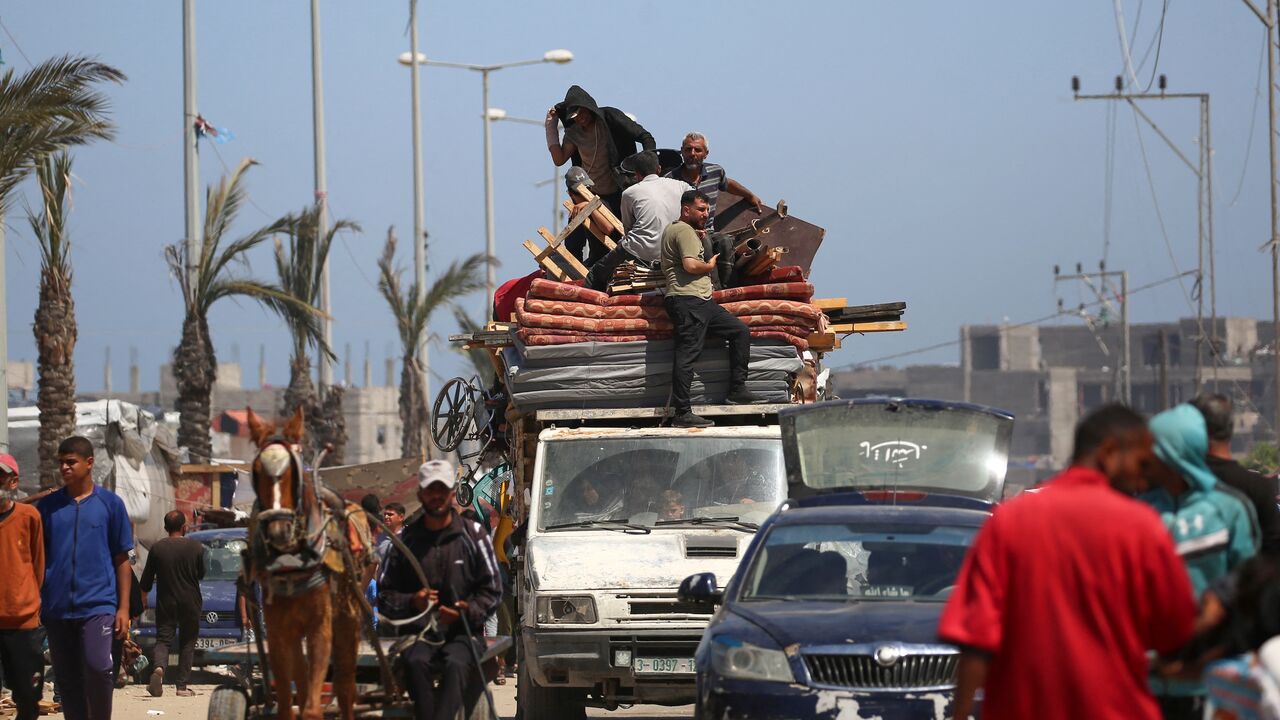
RAFAH, Gaza Strip — Amid a state of chaos, panic and despair, tens of thousands of Palestinians are fleeing eastern Rafah, which many had considered their last refuge until Israel dropped leaflets earlier this week ordering them to “evacuate immediately” ahead of a military operation in the southern Gaza city.
“We will act with extreme force against terrorist organizations in your areas of residence,” the leaflets read. “Anyone who is near terrorist organizations puts his life and the life of his family at risk.”
With that, on the morning of May 6, Israel ordered the evacuation of nearly 100,000 Palestinians from their homes and tents.
My family and I had been displaced from our home in Gaza City shortly after the Israel-Hamas war broke out on Oct. 7. We took refuge in several places in southern Gaza amid intense battles and multiple evacuation orders. We finally settled in a tent in eastern Rafah, designated a safe area by Israel.
This week, I received a call on my personal phone from an Israeli officer who ordered me to leave for our safety. I later learned that most of the other families in the surrounding area had received the same call.
My husband dismantled our tent and rented a truck to transport our belongings, and we headed once again toward the unknown. We left not knowing where we were going until we finally settled on al-Mawasi, a town northwest of Rafah on Gaza's southern coast.
Overloaded trucks filled the streets as the recently displaced moved toward an Israeli-designated "humanitarian zone," extending from Deir al-Balah on the central coast of Gaza down to al-Mawasi, according to the leaflets.
In al-Mawasi, I met with Khaled Mabhouh, who had also been displaced from eastern Rafah. He was busy setting up a tent on the sand to shelter his family.
“We were anticipating a cease-fire agreement between Hamas and Israel, but we were extremely disappointed with Israel’s sudden decision to invade Rafah,” Mabhouh said.
The Israeli military intensified airstrikes on Rafah hours after a rocket attack killed four of its soldiers on Sunday, May 5, near the Kerem Shalom crossing, on Gaza's southern border. The army said Hamas fighters had fired at least 10 projectiles from an area near the Rafah crossing toward Kerem Shalom. Israeli authorities closed the crossing temporarily, reopening it on Wednesday.
On Monday, Hamas announced that it had accepted an Egyptian-Qatari proposal for a cease-fire in Gaza after more than 210 days of war. The joy that erupted among the Palestinians in Gaza was short-lived, however, as the Israeli army pushed ahead for an assault on Rafah, where it believes the bulk of Hamas' remaining forces are holed up. Israel said the current terms in Hamas' response are different from what it had agreed to.
Palestinians’ hopes for an end to the hostilities were dealt another blow on Thursday after the Israeli and Hamas delegations as well as CIA Director Bill Burns left Cairo without reaching a deal on a cease-fire and hostage release deal during a day of negotiations.
The most contentious issues appear to be disagreement over a full Israeli withdrawal from Gaza, as demanded by Hamas, and the number and lists of Israeli hostages and Palestinian prisoners to be freed.
“We are sick of it,” said Maha Abu Sharkh, who was displaced with her family from eastern Rafah to the Nuseirat refugee camp, in central Gaza.
Abu Sharkh had fled her home in northern Gaza last year, at the onset of war, to escape Israel's heavy bombardment of the area. In search of safety in the south, she has now been displaced more than four times.
“I am tired of everything,” Abu Sharkh told Al-Monitor. “I am tired of war, repeated displacement, sleeping in tents, which are cold at night and hot during the days, as our hopes for a cease-fire keep fading.”
Humanitarian aid stoppage
Making matters worse, the movement of residents from Gaza to Egypt and the entry of humanitarian aid into the besieged enclave came to a halt after the Israeli army seized control of the Rafah border crossing on May 7, two days after closing the Kerem Shalom crossing, another aid route.
Many bakeries had to halt operation due to the lack of flour, leaving thousands of the displaced without daily rations of bread.
Muhammad Abu Saada, 19, was supposed to travel to Cairo on May 7 to complete his university studies, but that all changed with the Israeli takeover of the Rafah border crossing.
“I had been waiting to leave for about two months, and when the time came, the Israeli army took control of the crossing and closed it until further notice,” Abu Saada, who is in al-Mawasi, told Al-Monitor. “I lost my future, and I will not be able to attend university in Cairo.”
Gaza-based political analyst Talal Okal, who writes for the local Al-Ayyam paper, told Al-Monitor, “While the entire international community demands that Israel not invade Rafah, its army is moving ahead with its plan, turning a deaf ear to international warnings about the humanitarian risks that such an invasion could entail.”
He added, “Israel is proving day after day that it is a state above international law.”
According to Okal, Hamas is interested in signing an agreement that ends the war, but Israel does not want such an agreement, and is using negotiations to buy time and carry out a complete invasion of Rafah.
Israel has repeatedly vowed to invade Rafah, which it says is Hamas’ last stronghold, despite warnings of the consequences such an invasion will have on civilians in the city. The Israeli military says the operation aims to dismantle Hamas’ networks and infrastructure and release the remaining hostages held captive by the group.



